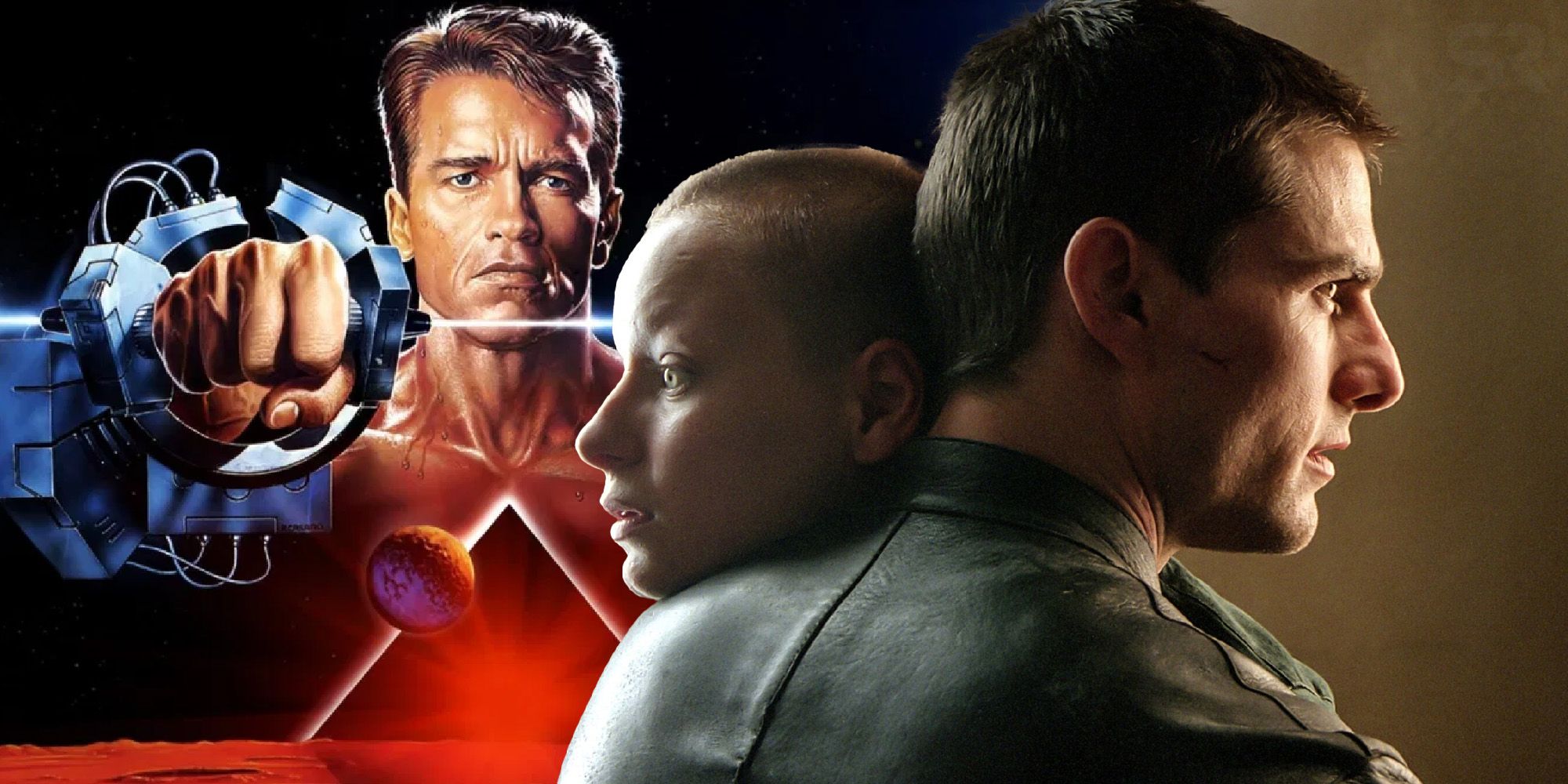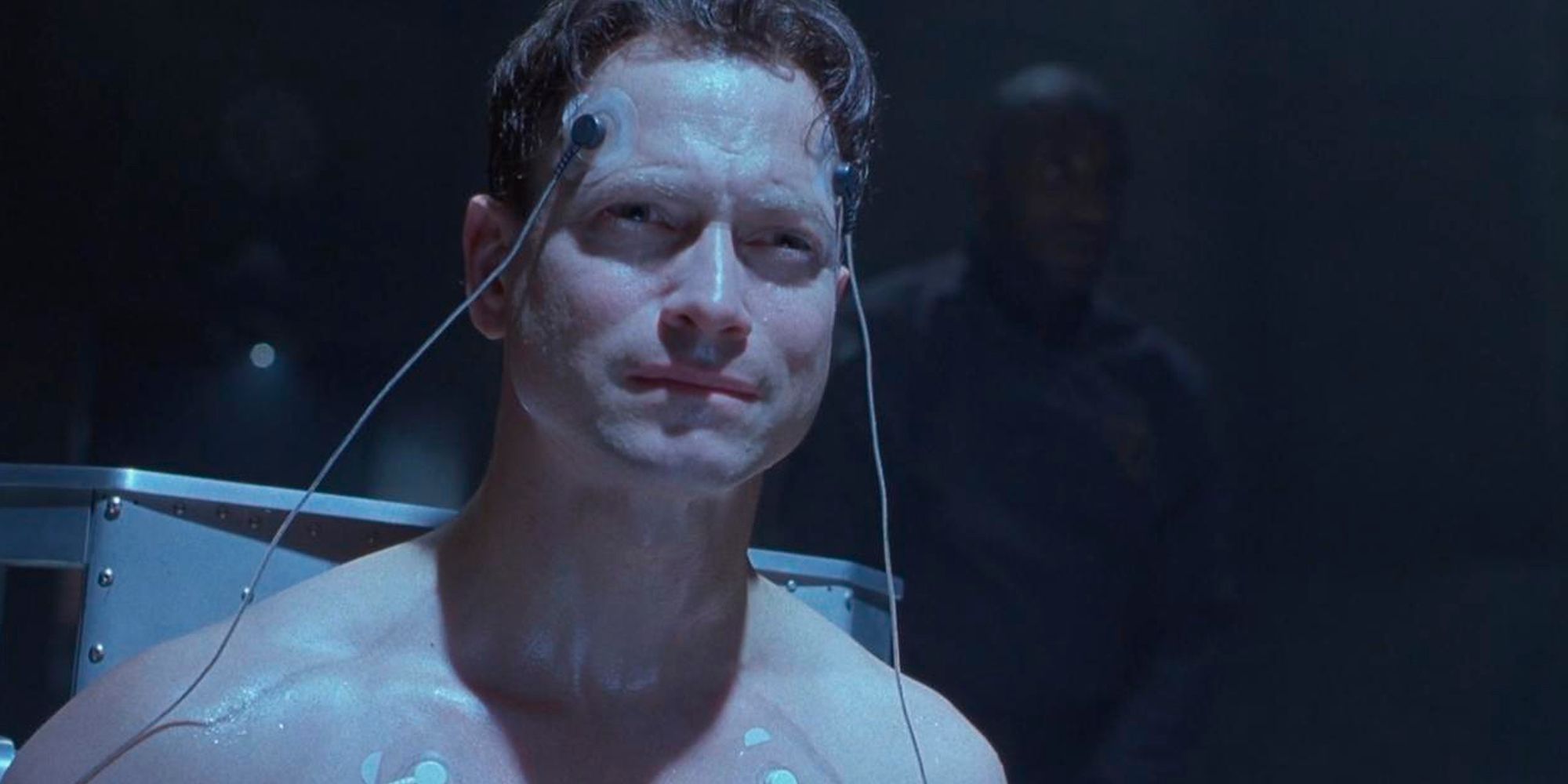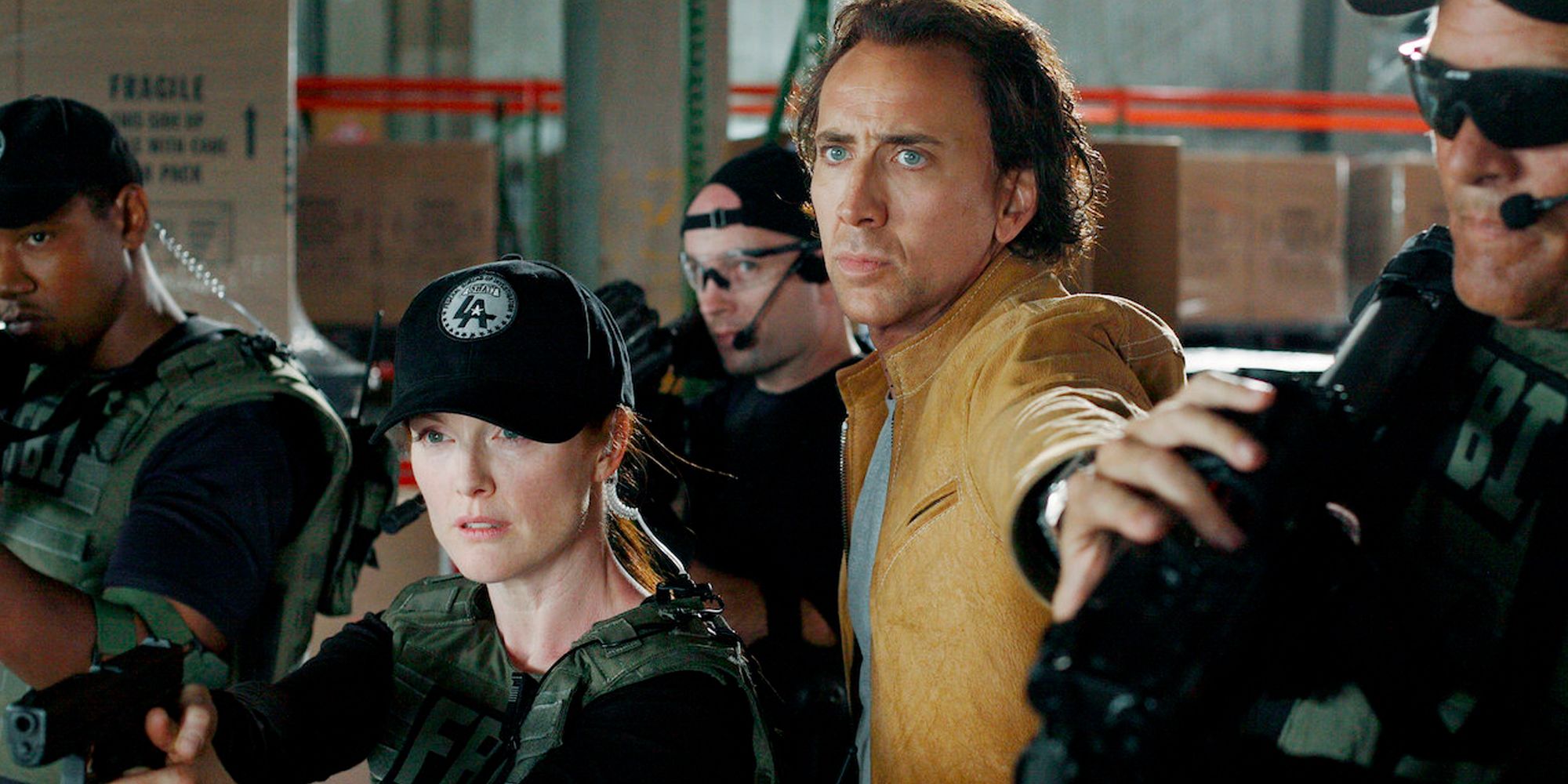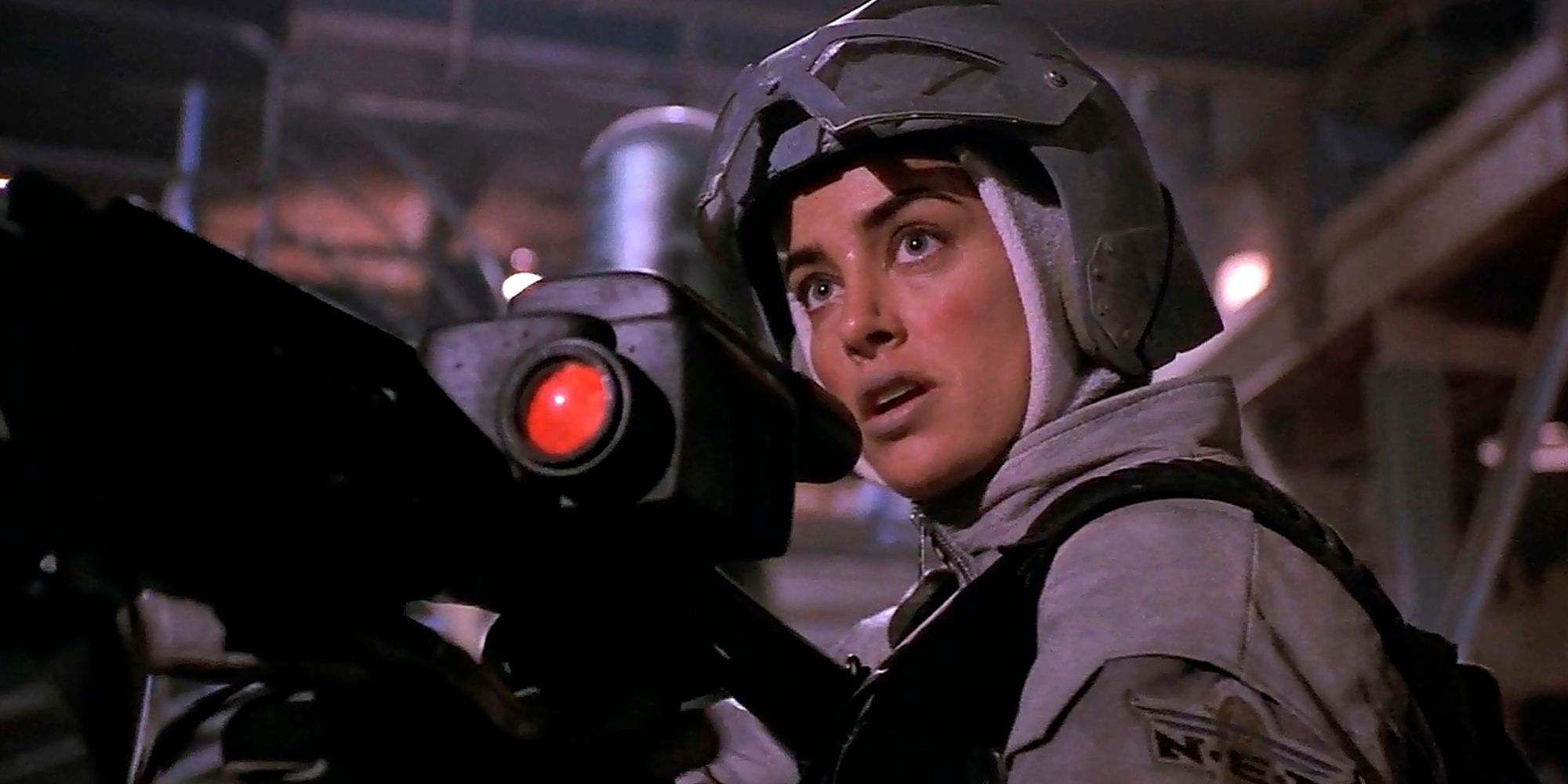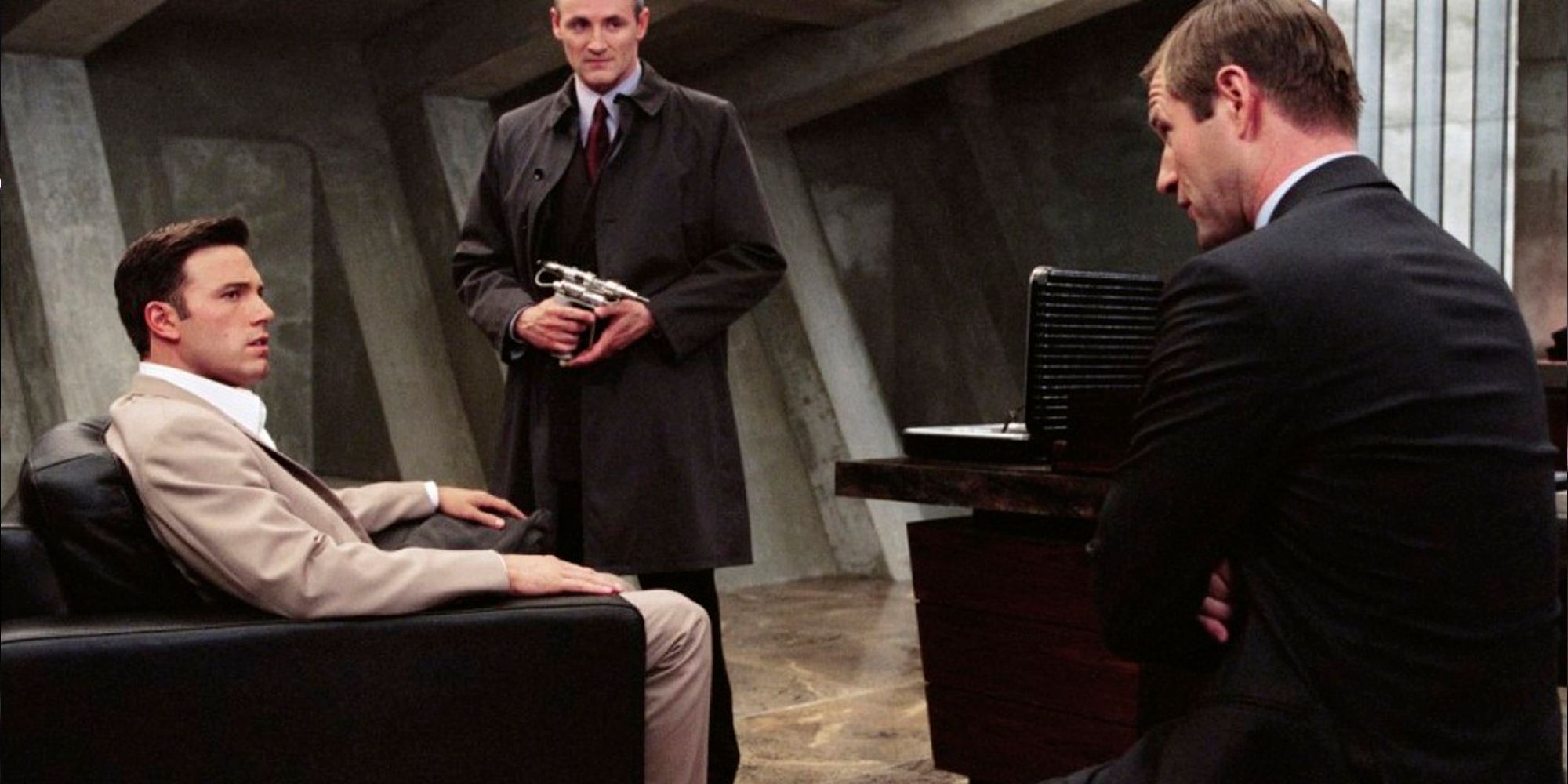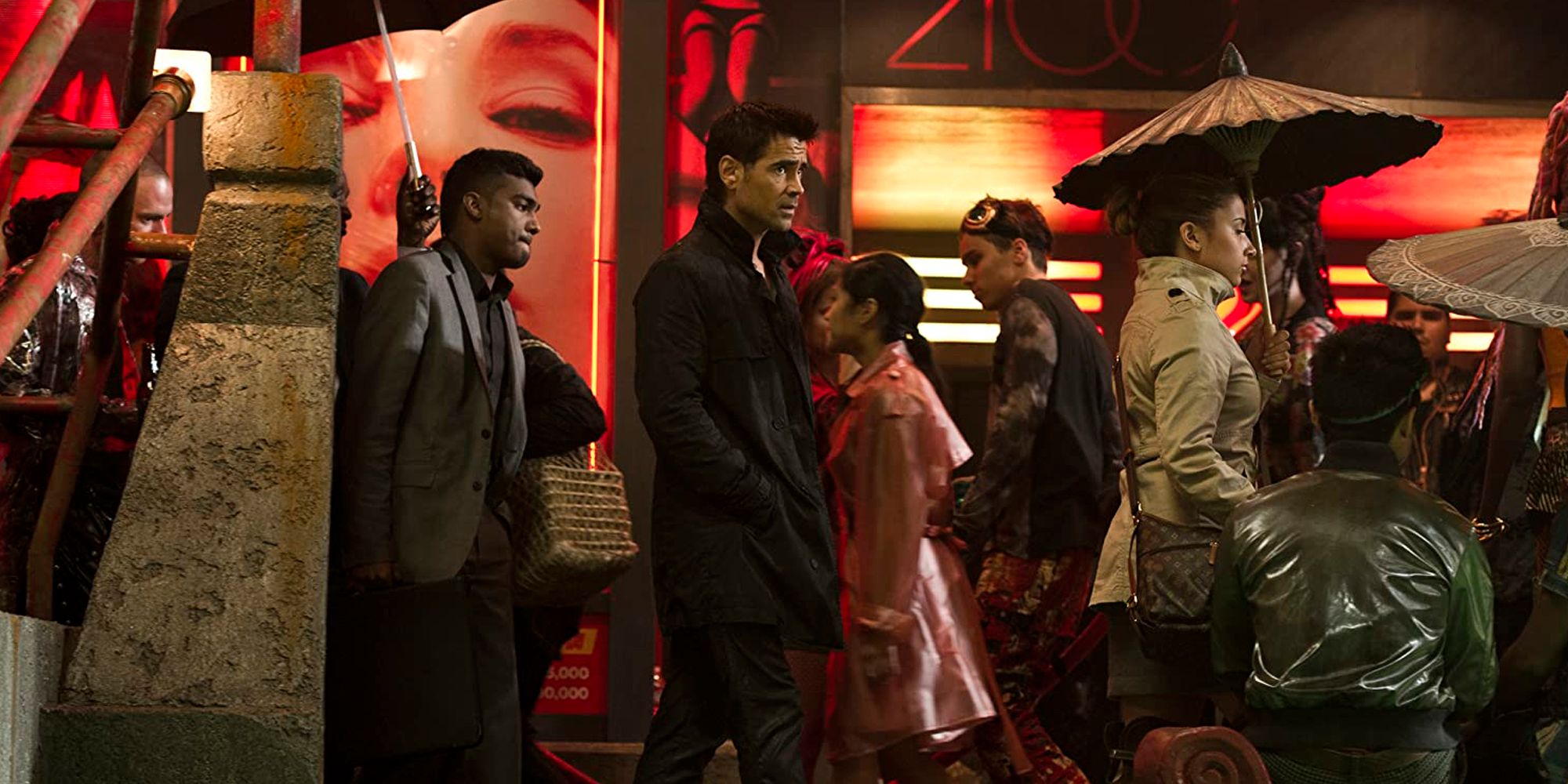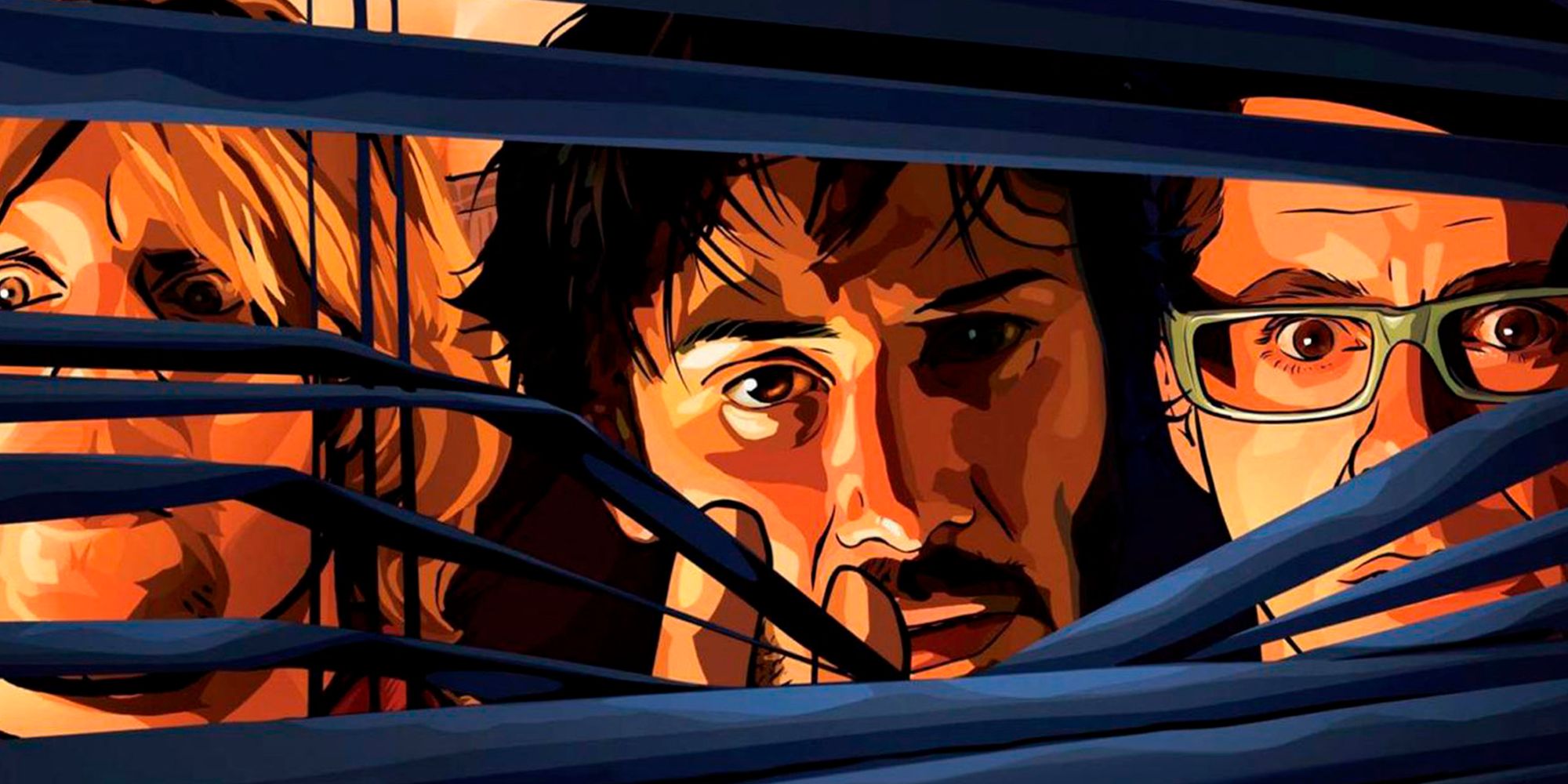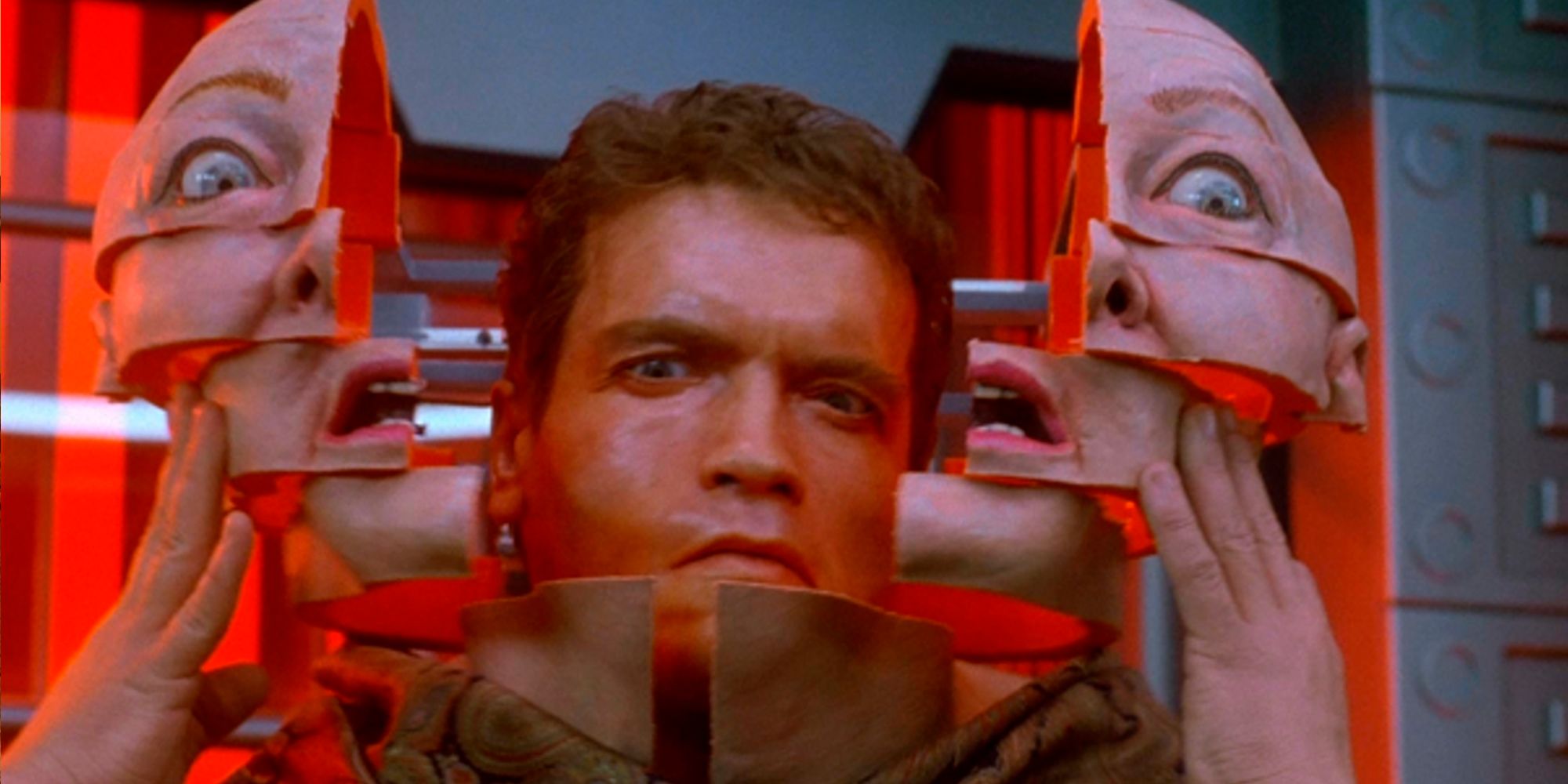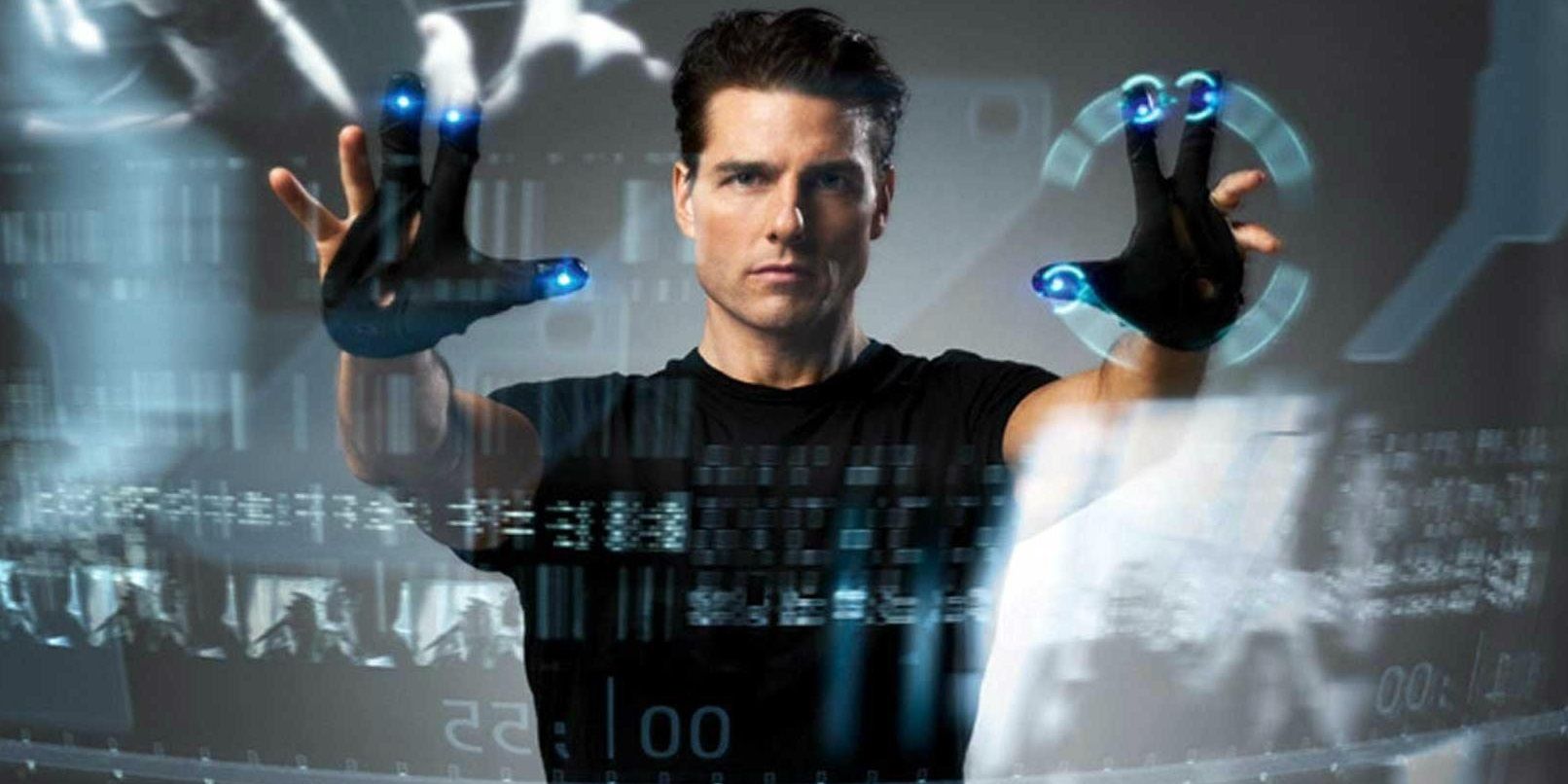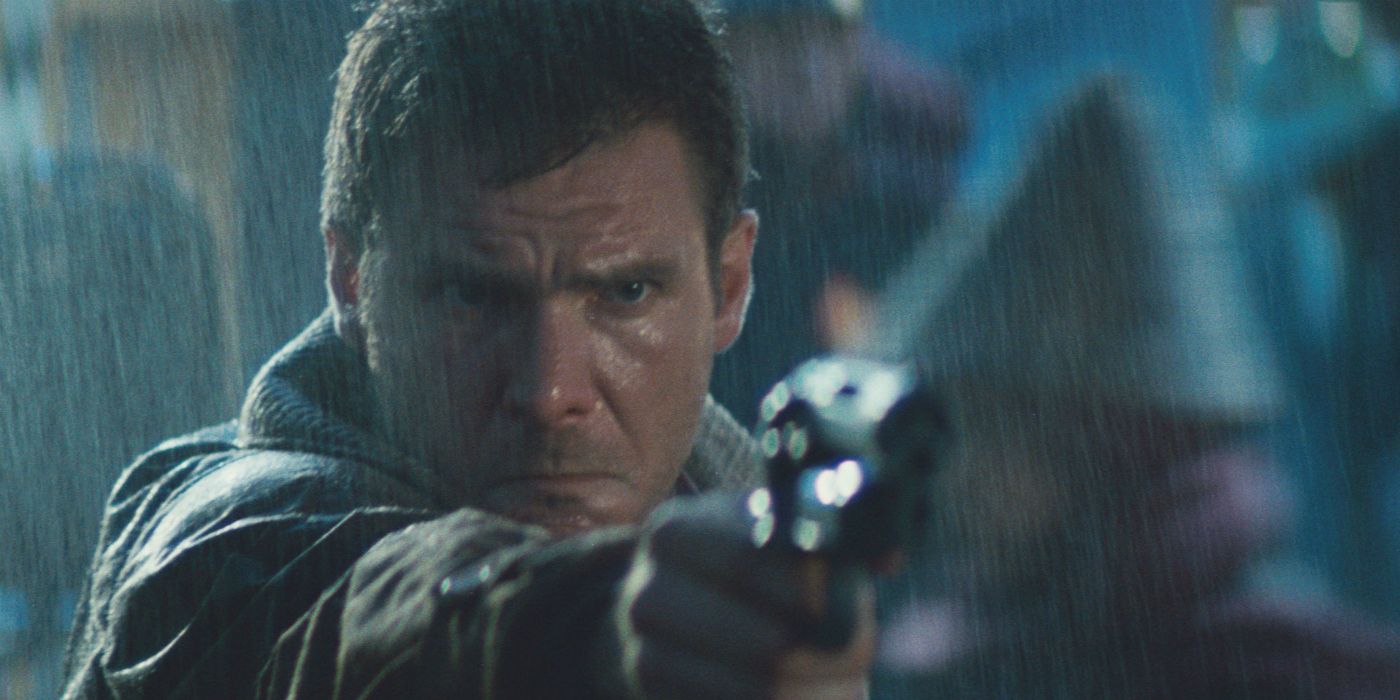How do sci-fi legend Phillip K. Dick's movie adaptations rank? Dick is one of the most influential sci-fi authors of his generation. With forty-four novels and more than one hundred short stories published, his works have inspired countless science fiction stories and creators. His writing explored the meaning of reality, perception, and identity; themes that still resonate with audiences to this day. Not only his stories have been adapted into comics, songs, TV shows, and movies, but they also influenced Ursula K. Le Guin, the Wachowskis, Charlie Kaufman, Darren Aronofsky, Terry Gilliam, and Christopher Nolan, to name a few. From Blade Runner to The Matrix, from TV shows to comics, there is no denying that Phillip K. Dick has shaped modern science fiction.
However, the very nature of Phillip K. Dick’s stories means not all adaptations are successful at translating his themes and narrative style. This is especially true with film because of the nature of Dick's narratives. One of the main focuses of his works is reality and how it’s shaped by perception. Often, his characters are unreliable narrators, like Keanu Reeves' Bob Archer, either incapable of judging what is real or not or experiencing alternative realities, dreams, and or drug-induced trips that muddle perception. He also played with the notion of humanity: what it is and what it means to be human. From androids to a collective consciousness, Phillip K. Dick puts into question what it is the line between humanity and humane. All of these elements are not easily adapted to the big screen.
Because Phillip K. Dick’s stories can be too short, too complex, or simply too visually hard to translate, the best movie adaptations aren’t necessarily the most accurate to his plots, but the ones that capture and explore his favorite themes using the tools of cinema as creatively and innovatively as he did with the written word. Ideally, the best movies also had the same or similar impact on the genre as Phillip K. Dick did on sci-fi literature, influencing science fiction in a major way. With that in mind, here’s a ranking of every Phillip K. Dick sci-fi movie adaptation from worst to best.
12. Impostor (2001)
One of the issues with adapting a Phillip K. Dick short story is that sometimes there isn’t enough plot to sustain a feature film. This seems to be the case with Impostor. The original story remains the same: humanity is fighting against an alien invasion, and the aliens are using human replicants as weapons to infiltrate and harm society. The main character - played by Gary Sinise - is accused of being a replicant and spends the rest of the movie trying to prove his humanity. While a faithful adaptation, critics and audiences were not impressed by the director’s style or the meandering pace.
11. Next (2007)
Starring Nicolas Cage, Next loosely adapts the short story “The Golden Man.” The key term here is “loosely” as the only element these two share is a character who possesses the ability to see into the future. In the original story, two government agents hunt down a mutant with the power to see the future, but while they manage to capture him, he uses his powers of seduction to escape after impregnating the female agent. The story is more about the future of humanity and what role these human mutants will play. Meanwhile, in the movie Nicolas Cage plays a magician who can see into the future and is pursued by FBI agents who want him to stop a nuclear terrorist attack. A multitude of plot holes and a shaky grasp at what makes a good Phillip K. Dick twist ending make this movie at best forgettable.
10. Screamers (1995)
Screamers is an adaptation of Phillip K. Dick’s short story “Second Variety.” The movie changes the setting from the Soviet Union fighting a war with the United Nations to two fictitious factions in a conflict over a natural resource (an important idea that would become increasingly important to sci-fi movies like Avatar). However, its main plotline remains the same: self-replicating machines turning on their creations, a theme present in the original. Although its limited budget did it no favors, the movie was able to capture the paranoia of “Second Variety.” Sadly, in the end, its faithfulness did not impress critics and audience and its box office performance was weak.
9. Radio Free Albemuth (2010)
The most interesting detail about both the movie and novel Radio Free Albemuth is that the character of Phillip K. Dick himself is part of the story and is played by Shea Whigham. Overall, this adaptation captures the tone and many aspects of the original novel, remaining pretty faithful, but unfortunately, it suffers from being too faithful to the text while not having enough budgets to truly bring his vision to the big screen. Good adaptations need to find the right balance between the spirit of the original and the needs of a good movie and this was just not the case with Radio Free Albemuth.
8. Paycheck (2003)
Starring Ben Affleck, this John Woo’s sci-fi adventure retains the basic premise of the original “Paycheck,” where a talented engineer accepts to work on a secret project for a large sum of money, but with the stipulation that his memory will be wiped out after his work is done. When he wakes up, he discovers his past self has decided to forgo the payment for an envelope containing apparently random items, and thus the mystery begins. While the premise remained the same, key elements of the original plot were changed, such as the political commentary and the setting. Being a John Woo movie, there are lots of scenes dedicated to action, while the original was more focused on the main mystery. It’s a fun action film, but not exactly groundbreaking cinema.
7. Total Recall (2012)
Very loosely based on the short story “We Can Remember It for You Wholesale,” this remake of the 1990 Total Recall adaptation doesn’t offer anything new. The premise is the same: a man wanting to experience excitement has fake memories implanted in his brain, making it impossible for him to distinguish reality from fantasy. But while the original short story ended with more questions than answers, this version almost hides the possibility that Quaid, the protagonist, is still being tricked by false memories. But the main issue with this movie is how bland and uninspired everything feels like. It has none of the visual creativity and or the charisma of the 1990’s version. It’s a decent action film, but one that is best forgotten.
6. The Adjustment Bureau (2011)
This sci-fi romance adventure stars Matt Damon and Emily Blunt in a tale that mixes romance and science fiction. A congressman fights against a secret group of powerful beings trying to keep humanity on “the Path” by separating him from his true love. The Adjustment Bureau strays very far from the original material, but, in its case, that might’ve have been for the best. “Adjustment Team” is far from Phillip K. Dick’s best work, and it can be seen as a less interesting version of Frederik Pohl’s short story “Tunnel Under the World.” By 2011, the concept of a powerful group controlling our lives was now cliché, and thus the creators of the movie decided to add another twist with the romance. It appears to have worked, as The Adjustment Bureau had better reviews from critics and audiences alike, and a decent run at the box office.
5. A Scanner Darkly (2006)
The genius of A Scanner Darkly is that its unique rotoscoped animation style fits perfectly with the drug-induced hallucinations and paranoia present in the original novel of the same name. “A Scanner Darkly” is a trip to read and the movie is a trip to watch. Keanu Reeves plays a government informant who lives with and befriends a group of drug addicts. His identity is concealed as he gathers information as a double agent. Identity, drug use, paranoia, and experimental communities are themes explored in the movie and the novel. A Scanner Darkly is an especially effective Phillip K. Dick adaptation, one that captures the mood and themes of the original in a unique and original way, but it’s also anchored by great performances by Reeves, Robert Downey Jr., Winona Ryder, and Woody Harrelson.
4. Blade Runner 2049 (2017)
While not directly based on Phillip K. Dick’s short story “Do Androids Dream of Electric Sheep?” Blade Runner 2049 draws upon the spirit of Dick’s works and successfully expands on the Blade Runner universe. It never strays from the questions explored in the movie and the short story: what makes us human and if you can’t tell, does it matter? More emotional than the 1982 movie, it’s also as visually striking as its predecessor. Although it did not change pop culture and the science fiction genre like its predecessor, Blade Runner 2049 is a worthy sequel to a sci-fi classic and faithful to Phillip K. Dick’s themes.
3. Total Recall (1990)
As mentioned before, Total Recall borrows the premise of the Phillip K. Dick’s “We Can Remember It for You Wholesale,” but quickly strays into an action thriller territory, while the original story focused on the philosophical questions behind memory and identity. Nevertheless, the triumphs of Total Recall are its visual effects and world-building, both breathing life to Phillip K. Dick’s Mars and expanding its plot in fun, smart ways. The violence, strange sexuality, and gory destruction present in the movie, elevated it to a pop culture classic. And how could one forget Arnold Schwarzenegger’s Quaid? His portrayal is full of charisma and he brings the right physically to the supposed secret agent.
2. Minority Report (2002)
Based on the short story “The Minority Report,” this Steven Spielberg movie is very faithful to the original while also adding plenty of world-building which, today, makes it seem like the movie itself had precognition. In fact, Spielberg invited experts in the field to come with the movie’s future reality; all based on their predictions of what was possible. The setting feels real and possible, which grounds the more out-there sci-fi concepts of certain humans having precognition and being able to wipe out all violent crime. That, along with a great performance by Tom Cruise, makes for a thrilling science fiction movie that respects the original story while adding new ideas to the genre much like Phillip K. Dick did during his time.
1. Blade Runner (1982)
Without a doubt, Blade Runner is the most influential movies of the sci-fi genre. Visually striking, emotionally heavy, and embedded deeply with philosophical themes, there was nothing quite like it at the time. Its impact on sci-fi cinema can be easily compared to Phillip K. Dick’s own contribution to the genre. But the best argument for it to be at the top of this list comes from Phillip K. Dick himself. He’s quoted saying his “life and creative work are justified and completed by Blade Runner.” Beautifully capturing the ideas and themes of its original story while becoming an influencing force itself, Blade Runner is the best adaptation of Phillip K. Dick’s work to date.

